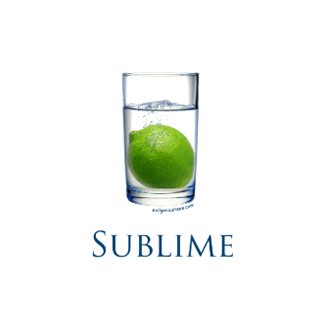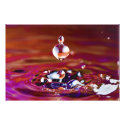Water is crucial for life. Whilst we might live without food for 5 weeks, we cannot survive for more than 5 days without water.1
If you were to break a human body down to its raw constituents you’d find that we’re mostly made of water. About 45-60% of lean body weight is water.2 If you work it out, a 70kg man would contain within his body 42 liters of water! This makes it clear that water plays an important part in our bodies, but what exactly does it do?

Uses of water
1.) Water is needed to help transport things around the body:
Several transport systems exist in the body that utilize water:
- Flow of blood:
The main transport system in the body is the blood which is composed largely of water. The water in the blood system is needed to carry the flow of oxygen, nutrients, immune cells and signalling molecules like hormones to cells and tissues, and to take away wastes, toxins and dead cells.
Keeping the blood flowing is important for many reasons including:
a.) To keep raw materials for energy production arriving at cells to maintain high energy. Insufficient flow of nutrients can lead to feelings of low energy and fatigue.
b.) To wash toxins and wastes away so that they don’t build-up to cause problems.
c.) To keep the blood at the right consistency which is important for heart health. If the blood becomes thicker, as can happen with severe dehydration, it is more effort for the heart to push it around (as there is more friction and resistance if the substance is thicker), and this increases the risk of hypertension and heart disease.3
In Traditional Chinese Medicine (TCM) “blood stagnation” is a common contributor to disease and is thought to contribute to blood clot formation. You can look for TCM blood stagnation by looking at your tongue and nails, where a purple colouration indicates stagnant blood flow.
- Flow of lymph: Lymph is another body fluid consisting largely of water. Lymph uses water for the transport of immune cells, so water is important for good immune health.
- Flow of digestive juices: In the digestive system, water plays a role in the transport of material through the gut. Having enough water is important in preventing constipation and in maintaining good digestion.
- Flow of substances between cells: The water found in the extracellular fluid around the body cells acts as a transporting medium through which cells can signal to one another via sending and receiving certain biochemicals. This gives your body the ability to respond well to stimuli.
2.) Water is needed to fill cells out and to keep them with the right shape and turgidity.
66% of the body’s water is within cells. This helps maintain cell and tissue structure in tissues like the brain or in muscles which contain a large amount of water.
Water is even a small part of bone tissue, and studies have found that consuming enough water helps reduce the risk of osteoporosis.
A clear example of a tissue where water is seen to play a role in maintaining its structure is in the skin. Too little water and your skin can be dry and the risk of wrinkles is increased.
3.) Water is required for temperature regulation
Sweating is one of our key ways of cooling down to maintain healthy body temperature, and sweating is reliant on the presence of water. Insufficient sweating could make us overheat.
4.) Water is needed for lubrication of body organs
Water lubricates, cushions and protects various organs:
- Lubrication of joints: Water helps bones move smoothly past one another at joints. A lack of water around joints can increase the risk of friction which can increase the risk of arthritis.
- Lubrication of the eyes: Water not only helps the eyeballs move around, but it also washes away dust and other particles that may enter the eye and obstruct vision.
- Lubrication of the spinal cord helps protect and cushion it. A lack of water around the spinal cord can result in back pain.
- Lubrication of the foetus: Water plays a similar protective role when present in the amniotic sac of a foetus in the womb.
5.) Water in the body allows minerals to exist in their ionic state
Water provides a medium in which minerals can become ions, and this is important because minerals need to be in ionic form in order to carry out their jobs in the body. To illustrate this point, solid salt crystals act very differently to sodium and chloride ions in solution. The same is true inside the body.
Keeping minerals in their dissolved state is important to prevent problems like kidney stones and the uric acid stones found in gout, so drinking plenty of water is crucial in avoiding conditions like this.
6.) Water helps in chemical reactions in the body:
There is a reaction called hydrolysis where water is used and broken up to help break up other molecules. (hydro = water ; lysis = breakdown).
One of the key areas where chemical reactions depend on water is during digestion where water provides the medium in which enzymes break down food molecules. Digestion-linked water is found in saliva, gastric juices and intestinal juices.
Chemical reactions are not exclusive to the digestive system. They can occur anywhere in the body so the cells need a medium to bathe in to allow for chemical reactions to take place. For example, enzymatic reactions throughout the body depend on a fluid medium to occur properly.
7.) Water helps dilute toxins, acids and alkalis:
Some toxins are made within the body as by-products of our metabolism (like urea for example), whilst others are ingested (like pollutants and certain food chemicals e.g. alcohol). Water is used to dilute their dangerous effects.
Water also dilutes acids and alkalis to help ensure that the body is at the correct pH.
Several conditions benefit from the diluting power of water:
- Alcohol excess: Drinking water before, during and after alcohol dilutes its effects.
- Carcinogens: The diluting power of water may explain partly why a high intake of water has been associated with lowered risk of colon and bladder cancer.
- Heartburn-causing substances: Dilution also may explain why drinking water can alleviate heartburn which has been caused by certain food molecules you ate.
- Gout: Gout is another condition that benefits from the diluting effect of water. Gout occurs when a substance called uric acid is in excessively high concentrations in the body, and diluting it with water, and thereby encouraging its passage out of the body in the urine, can help.
- Headaches and migraines: Sometimes headaches and migraines are caused by excessive toxins or inflammatory molecules floating around in the blood. If you dilute these with more water intake, it can help alleviate the pain.
- Skin health: When the body has excess toxins, naturopathic theory suggests that they build up in the skin, where they can then create spots. The more water there is to dilute the toxins. the lower the risk that toxins will cause spots. Even skin conditions like psoriasis can benefit from drinking enough water.
- Diluting toxins can help lose weight: One theory has suggested that when the body’s toxins are dealt with by dilution, they are excreted via the kidneys in the urine. This puts less of a load on the liver for detoxifying them, leaving the liver free to metabolise fat, and this may promote fat elimination.
Note: Although water helps dilute toxins, the ideal would be that there are minimal toxins present in the first place. Prevention is always better than cure.
8.) Water helps generate the power that drives our nervous system
Water together with mineral ions contained within it, generate a hydroelectric voltage across cell membranes which is used to drive impulses through our nervous system. Insufficient water may affect nervous function.
9.) Water sometimes acts like glue in the body:
In certain situations the body uses water as a type of glue, to stick particular solid parts of cell structures together. You can see this effect on some level if you create a small water puddle on a table, and then put a ruler on the puddle. Try to pry the ruler off and you’ll see it sticks a bit.
10.) Water is needed to be consumed in order to replace the losses:
Water is lost through sweating, urination, exhalation and even some in the faeces. It’s important to replenish these losses to enable water to carry out all the above functions.
Another minor benefit of water is that if you’re drinking certain mineral water brands, it provides a small amount of minerals like calcium, magnesium, sodium and copper. When buying mineral water, check out the label and you’ll often see there are traces of these. The best waters are those that are high in magnesium (>20mg per liter) and calcium (>50mg per liter), and low in sodium (<10mg per liter) and in nitrates (<5mg per liter).

How much water do we need? Recommended Water Intake:
As a rough guide, most nutrition sources say 6-8 glasses of water a day is the recommended water intake.
If you want to get slightly more technical and accurate, your fluid needs can be calculated according to your individual body weight. The formula is:
35ml water x your body weight in kg = milliliters of water you need a day
So, say a woman weighs 60kg, she’d need 2.1 liters a day (35 x 60 = 2100ml), which equates to about 8 glasses of water a day (if 1 cup contains 250ml). The more you weigh, the more water you’ll need.
Apart from body weight, several other factors may increase your water needs, including consumption of diuretics (e.g. alcohol, caffeine), being in hot and/or dry environments, and being highly physically active. The more active you are, the more water you need to replace that lost in sweat. For athletes the formula changes to:
42ml water x body weight in kg = milliliters of water needed daily
Why do I have to drink water rather than other forms of fluids?
Water is the most sublime choice of fluid to hydrate with because it has no calories and hydrates you with minimal effort needed (e.g. no digestive-processing or liver detoxing is required to process water). Other drinks are often sugary, contain caffeine, artificial chemicals, sweeteners or other potentially problematic chemicals which means that they do other things than just hydrate the body. Sometimes these other drinks or fluids occupy the body’s resources unnecessarily, drawing energy and materials away from more useful activities.
The only other drinks that are good to hydrate with are certain herbal teas.
Can you ever drink too much water?
Yes. Too much of *anything* can be harmful.
Your kidneys can only get rid of water at a rate of about 1 liter an hour, so if you drink more than 1 liter in an hour, it means that you start to accumulate more body fluids than you can eliminate. To illustrate why this is a problem, let’s look at a balloon as an analogy for your body: What happens when you force water into a balloon at a faster rate than it can leak it out of a pinhole? The balloon starts to expand and if filled up with enough water, it can burst. In short, excess water is not just a health hazard for balloons, it can also be dangerous for humans. So steer clear of any water-drinking competitions where you have to glug down more than a liter in one go. People have died at these types of competitions.
But it’s important to remember that drinking too much is very rare and water intoxication is not something you are going to experience from sensible water consumption. So drink your 6-8 glasses a day to maintain optimal health, but make sure you spread out your water consumption over the course of your day.
Related Products
Related Articles
See our other nutrition articles including:
- Carbonated Water: Is Fizzy Water Bad for You?
- Is saturated fat bad for you?
- Why do I need fiber?
- Why do I need iodine?
- Why do I need zinc?
- Why take supplements?
References
1. Glenville. 2006. Fat Around The Middle: How To Lose That Bulge – For Good. Kyle Cathie
2. Kumar & Clark 2005. Kumar and Clark’s Clinical Medicine. Saunders Ltd. 6 edition
3. Chan et al. 2002. Water, Other Fluids, and Fatal Coronary Heart Disease The Adventist Health Study Am. J. Epidemiol. 155 (9): 827-833.
Note:
This site is working in affiliation with Amazon.com (for USA visitors) and Zazzle. If you like a product that was recommended anywhere on this website, please consider buying these products via the links on this site, to help keep this website running. Thanks ![]()
Disclaimer:
Every effort has been made to ensure that the information contained in this article is accurate. However the information contained in this article is for educational purposes only. Suggestions contained in this article are not intended as a substitute for consultation with a health professional. All matters regarding health and supplementation require medical supervision and careful examination of contraindications and possible interactions. The author does not accept responsibility for the use of this information, nor shall the author be liable for any loss, injury or damage allegedly arising from any information or suggestions in this article.















Hello, Thank you for your great article, I found this useful and interesting. Also the cartoon is very nice
There are infinite beneifts of water. They wont end if we will start counting them.
You should take part in a contest for one of the best blogs on the web. I will recommend this site!
Many many quality points there.
I’m really craving some water now!!!
I’d like to disagree on the statement “Too much of *anything* can be harmful”. You can never have too much love… ;P Anyway, thanks for the info! =D